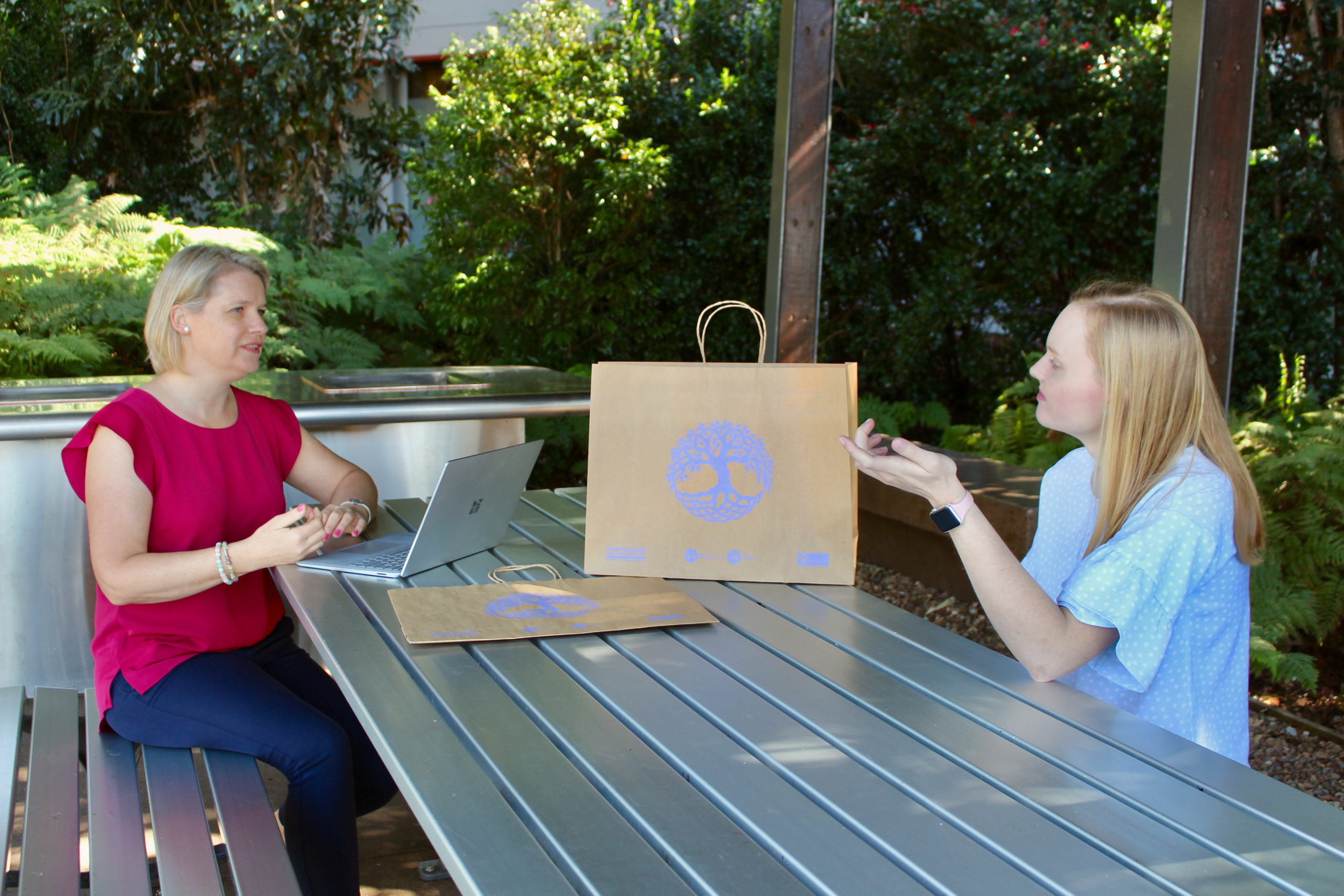Research project to evaluate impact of handover bags: A 10-minute survey
Research project to evaluate impact of handover bags: A 10-minute survey
Thursday, September 10, 2020
Have you ever wondered what happens to a loved one’s possessions when they die in hospital, hospice or residential aged care facility? Often, their objects are returned to families in any available plastic bag, sometimes even a garbage bag. Handling personal belongings in this way can be viewed as insensitive and even distressing for those receiving them.
In 2017, Sunshine Coast Hospital and Health Service (SCHHS) End of Life Care Committee, in partnership with consumers, decided to change this by implementing the Handover Bag initiative.
“Somebody’s clothing is an extension of them. If we are treating them with respect, we are conveying that the whole person was important,” Wendy Pearse, SCHHS End of Life Care Project Officer said.
SCHHS now hands possessions back to families in carefully designed paper bags with a purple tree of life symbol printed on the side.
Wendy says the Handover Bags initiative already had a good reception in other hospitals and facilities across Australia, and even as far away as Canada and Brazil.
“It got people thinking about how we compassionately care for loved ones when somebody dies in hospital. End-of-life care and palliative care are not just about medical care. It is about providing a compassionate, holistic experience not just for the patient, but also their family,” Wendy said.
A need for more data to promote the project
Three years on, Wendy felt that the Handover Bags had a very positive impact on the families of deceased patients. However, she did not have the resources to evaluate the initiative and gather objective, measurable data. A discussion with occupational therapy lecturer Dr Kieran Broome, from USC Sunshine Coast, led her to a solution.
“The research project was born out of a water cooler conversation with Kieran. I told him I would like to have some students to help with research projects I wanted to get done. It was a bit of luck and a bit of good management to get this research happening,” Wendy said.
USC occupational therapy student Elli Pukallus chose the Handover Bags study as her university Honours research project, which led to a collaboration with Wendy. They now hope that the research project will help to highlight the positive impact of the Handover Bags and support organisations that wish to implement a similar initiative by providing them with data.
A win-win collaboration
When reflecting on why she chose this project as part of her research studies, Elli says the palliative care study “just really stood out to me because I had not come across palliative care in the area of occupational therapy before. I’m really glad that I chose it because I have learned so much from this project. Palliative Care will probably become a greater area of occupational therapy as the years go by.” Both Wendy and Elli agreed that palliative care should be an essential part of all health care and allied health training.
On their collaboration, Wendy said: “The value of the partnerships between health services and universities, to have students come and collaborate with us, has been amazing. I have learned so much from working with Elli, and I hope that we can continue opportunities like this to provide students with real-world experience about what palliative care and end-of-life care is about.”
“It’s a win-win situation because I want some projects done and Elli needed to learn and get more real-life experience. We are both learning from the research project so we can ultimately improve the quality of care provided to people receiving end of life care,” Wendy said.
How to participate
Community members and health professionals are encouraged to participate in the research so that a wide range of perspectives and experiences can be investigated. An online questionnaire can be completed here before 2 October 2020.
